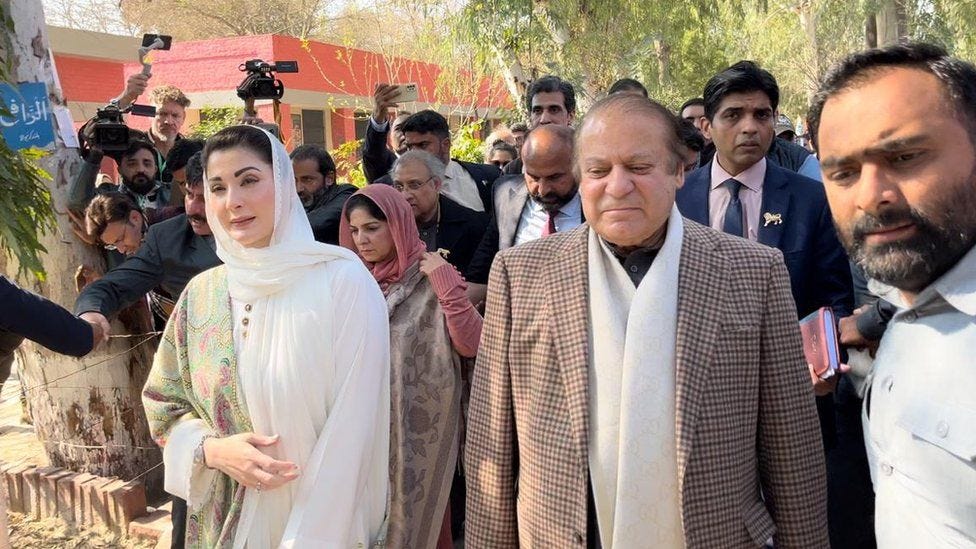Polling Closes in Pakistan General Election, Amid Allegations of Widespread Rigging
Pakistan Elections 2024: A Test of Democracy Amidst Challenges
Polls Close Amidst Controversy
As the polls closed in Pakistan today evening, curtains drew on a controversial election, highlighted by the suspension of mobile calls and data. This measure, justified by the interior ministry as essential due to threats of terrorism and to prevent the spread of rumors and fake news, overshadowed the millions of votes cast for a new government. Occurring nearly two years after the removal of former Prime Minister Imran Khan from office, this election featured Nawaz Sharif competing for an unprecedented fourth term, amidst widespread skepticism from analysts who regard it as Pakistan's least credible election to date.
The Shadow of Internet Cuts
The decision to cut internet services, a mere 10 minutes before voting commenced, although leaving wifi networks operational, has been criticized as a "cowardly act" by PTI, Imran Khan's Party. This suspension not only made it challenging for voters to locate their polling stations but also hindered intra-family coordination essential for a smooth voting process. The Interior Ministry justified these drastic measures as essential for maintaining law and order in the face of recent terrorism incidents.
Security and Accessibility Concerns
Despite Pakistan's history of militant attacks, election day saw only isolated incidents of violence, suggesting that the extensive security measures might have been a precautionary overstep. The internet shutdown, criticized across the political spectrum, raises significant concerns about electoral integrity and the facilitation of voters.
Fairness in Question
The fairness of the election has been a point of contention, especially with Imran Khan, a significant political figure, jailed and barred from participating. The election symbol ban on Khan's PTI party further complicates the political landscape, forcing PTI-backed candidates to run as independents under various unrelated symbols. This move, alongside allegations of campaign interference and arrests of PTI members, highlights the deep-seated political manipulation and military influence in Pakistan's electoral process.
Awaiting Results
As Pakistan awaits the election results, the credibility of the vote remains under scrutiny. The economic woes, compounded by the 2022 floods and soaring inflation, alongside rising violence, set a grim backdrop for these elections. The heavy security presence at polling stations and the closure of border crossings underscore the tense atmosphere under which this electoral process unfolded.
Election Violence and Voter Sentiment
Election-eve bomb attacks in Balochistan, claiming at least 28 lives, underscore the volatile security situation, further questioning the efficacy of the extensive internet and communication blackout. Voter sentiment in Balochistan reflects a disillusionment with the national political process, viewing it more as a selection than an election. This sentiment, coupled with the sidelining of significant political entities like Khan's PTI, paints a complex picture of Pakistan's democratic process.
Looking Ahead
The international community and neighboring countries, especially India, watch cautiously as Pakistan navigates this critical juncture. The outcome of the elections and the ensuing political landscape will significantly impact regional stability and the pursuit of democracy in South Asia. As both the challenges of economic recovery and political legitimacy loom large, Pakistan stands at a crossroads, its future direction hanging in the balance of this contested electoral exercise.






